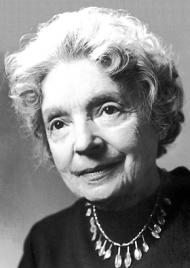The Nobel Prize is a set of annual international awards bestowed in a number of categories by Swedish and Norwegian committees in recognition of cultural and/or scientific advances. The will of the Swedish inventor Alfred Nobel established the prizes in 1895. The prizes in Physics, Chemistry, Physiology or Medicine, Literature, and Peace were first awarded in 1901. The related Nobel Memorial Prize in Economic Sciences was created in 1968. Between 1901 and 2012, the Nobel Prizes and the Prize in Economic Sciences were awarded 555 times to 856 people and organizations. With some receiving the Nobel Prize more than once, this makes a total of 835 individuals and 21 organizations.
The Peace Prize is awarded in Oslo, Norway, while the other prizes are awarded in Stockholm, Sweden. The Nobel Prize is widely regarded as the most prestigious award available in the fields of literature, medicine, physics, chemistry, peace, and economics.
The Royal Swedish Academy of Sciences awards the Nobel Prize in Physics, the Nobel Prize in Chemistry, and the Nobel Memorial Prize in Economic Sciences; the Nobel Assembly at Karolinska Institutet awards the Nobel Prize in Physiology or Medicine; the Swedish Academy grants the Nobel Prize in Literature; and the Nobel Peace Prize is awarded not by a Swedish organisation but by the Norwegian Nobel Committee.
The various prizes are awarded yearly. Each recipient, or laureate, receives a gold medal, a diploma and a sum of money, which is decided by the Nobel Foundation. As of 2012, each prize was worth 8 million SEK (c. US$1.2 million, €0.93 million). The prize is not awarded posthumously; however, if a person is awarded a prize and dies before receiving it, the prize may still be presented. Though the average number of laureates per prize increased substantially during the 20th century, a prize may not be shared among more than three people.
First prizes
Once the Nobel Foundation and its guidelines were in place, the Nobel Committees began collecting nominations for the inaugural prizes. Subsequently they sent a list of preliminary candidates to the prize-awarding institutions. Originally, the Norwegian Nobel Committee appointed prominent figures including Jørgen Løvland, Bjørnstjerne Bjørnson and Johannes Steen to give the Nobel Peace Prize credibility. The committee awarded the Peace Prize to two prominent figures in the growing peace movement around the end of the 19th century. These were Frédéric Passy, co-founder of the Inter-Parliamentary Union, and Henry Dunant the founder of the International Committee of the Red Cross.
The Nobel Committee's Physics Prize shortlist cited Wilhelm Conrad Röntgen's discovery of X-rays and Philipp Lenard's work on cathode rays. The Academy of Sciences selected Röntgen for the prize. In the last decades of the 19th century, many chemists had made significant contributions. Thus, with the Chemistry Prize, the Academy "was chiefly faced with merely deciding the order in which these scientists should be awarded the prize." The Academy received 20 nominations, eleven of them for Jacobus van't Hoff. Van't Hoff was awarded the prize for his contributions in chemical thermodynamics.
The Swedish Academy chose the poet Sully Prudhomme for the first Nobel Prize in Literature. A group including 42 Swedish writers, artists and literary critics protested against this decision, having expected Leo Tolstoy to be awarded. Some, including Burton Feldman, have criticised this prize because they consider Prudhomme a mediocre poet. Feldman's explanation is that most of the Academy members preferred Victorian literature and thus selected a Victorian poet. The first Physiology or Medicine Prize went to the German physiologist and microbiologist Emil von Behring. During the 1890s, von Behring developed an antitoxin to treat diphtheria, which until then was causing thousands of deaths each year.

